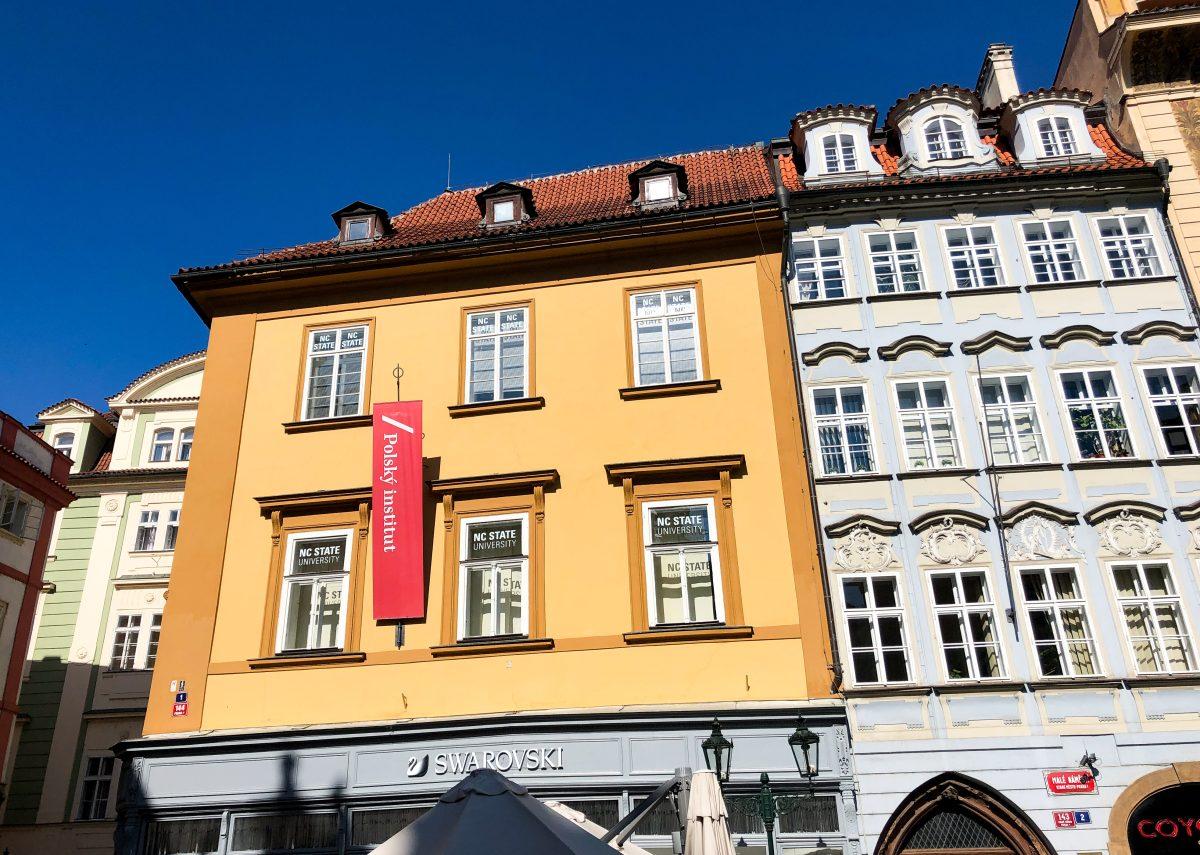Study abroad programs in Prague and other areas near Ukraine are continuing as planned despite the Russian invasion of Ukraine. Although there are no programs located in the area of conflict, programs in Poland, Austria and the Czech Republic are common locations for students to study abroad.
According to Kim Priebe, the director of the Study Abroad Office, no cancellations of study abroad trips have been made so far.
“At this time, our programs are continuing for spring and many have already been approved to proceed for summer,” Priebe said. “There is a chance that one or two programs may have to be canceled, but those decisions or announcements have not yet been made.”
According to Priebe, the Study Abroad Office coordinates an emergency response team who is in regular communication with students abroad. In the event of greater escalation of conflict in locations close to students, cancellations would be made and students would be sent home.
“The U.S. State Department would issue instructions to U.S. citizens abroad in the impacted areas,” Priebe said. “And if certain circumstances got to that point, and they would issue notifications for it, for example, ‘U.S. citizens should depart X location.’ We’re in regular communication with students who are abroad, and we utilize a mobile app to be able to communicate urgent messages to students, where they can also ping us and check in on emergency situations.”
Kimberly Strozewski, the director of the NC State European Center in Prague, is currently in Austria with a group of students from Prague. According to Strozewski, little has changed in both Austria and the Czech Republic.
“It feels more normal because we’re pretty far west of the conflict right now, like the part of Austria near the German-Swiss-Italian border,” Strozewski said. “But back in Prague, where we are normally based, there are some refugees. I don’t think there’s as many as there are in Romania and Hungary, but they’re starting to come.”
According to Strozewski, she plans to have a discussion with her students when they travel back to Prague, which is closer to the conflict. She plans to bring in a political science professor to make sure those abroad have a full understanding of the conflict and situation at hand. Students always have the option to return home if they are not comfortable.
“[The students] don’t seem very concerned,” Strozewski said. “They’re still traveling everywhere on the weekends. There’s no security risk, because the Czech Republic is part of the EU, it’s part of NATO. The biggest thing will be if refugees come in.”
According to Strozewski, aside from an increase in refugees, the only other noticeable change is a rise of anti-Russian feelings in Europe. Despite this, Strozewski doesn’t believe these tensions will grow to the point of violence.
“They seemed to embrace the refugees coming, but there’s a lot of Russians in Prague,” Strozewski said. “So we’ll watch that situation. I’m not sure if those Russians are going to leave or if they’re going to stay. But there’s a little bit of a rise in anti-Russian sentiment because of what’s going on, which is probably not just in the Czech Republic.”
For more information on study abroad programs, click here.













